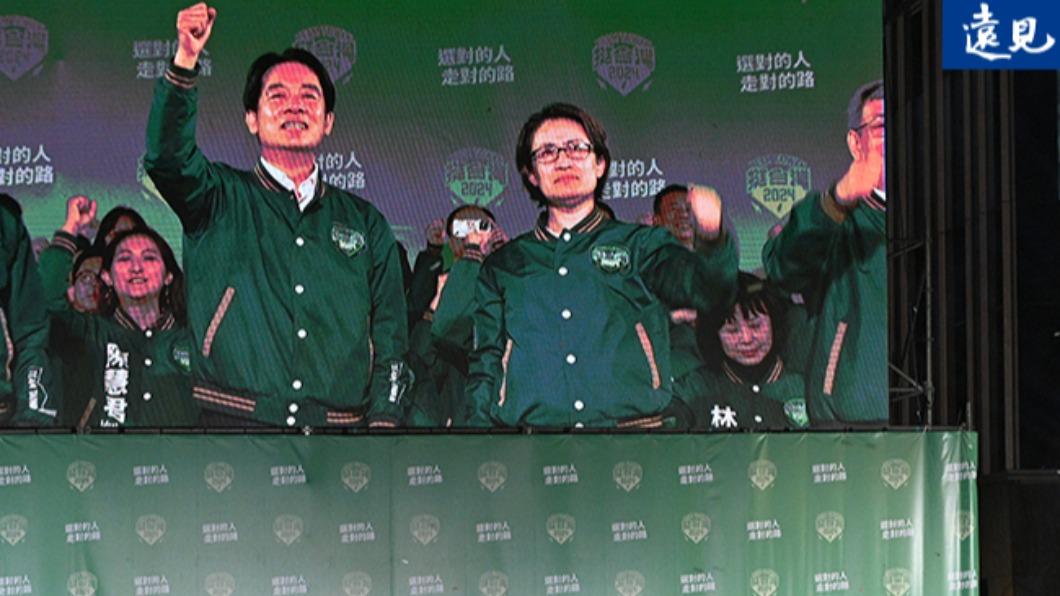TAIPEI (Global Views/TVBS News) — Following the presidential election, Lai Ching-te emerged victorious, albeit with just around 40% of the vote tally, and with the Legislative Yuan not securing a majority, numerous observers are predicting a challenging governance path for him over the next four years, reminiscent of Chen Shui-bian's tenure.
Nevertheless, veterans from Chen's administration argue that the current circumstances are more advantageous, pointing out that Lai's primary focus should be on bolstering this particular area.
In the past eight years, the Democratic Progressive Party (DPP) relished its dominance, navigating through controversial legislation with its numerical advantage.
Yet, with the Legislative Yuan now lacking a majority for any party, the incoming administration is pressed for enhanced communication and collaboration. Without it, the opposition's steadfast filibustering could severely impede the progress of national governance.
Despite Tougher Times under Chen, Lai will Find Maneuvering Space
Several officials from the Chen administration are unfazed by the current situation. Kuo Wen-pin, a former presidential office secretary, notes that the DPP has amassed 16 years of governing experience from Chen to Tsai Ing-wen.
This contrasts sharply with the era of Chen's initial ascent, a time when the concept of political party rotation was new to the electorate, stirring significant anxiety.
Following the election, reports suggested that the established bureaucracy was resistant to acknowledging communications from the new administration.
Furthermore, the Legislative Yuan then, before reforms, comprised 225 seats, with the opposition holding over two-thirds, which was sufficient for initiating a presidential impeachment. Today'slegislative landscape, however, shows no single coalition achieving a majority across the three parties.
An anonymous close associate of Chen revealed that, despite James Song leading a so-called third force, the People First Party was yet to be formed, leaving Chen's government to contend with the solidly unified pro-Kuomintang (KMT) coalition.
Today, a new third force emerges with the Taiwan People's Party, bringing its distinct perspectives that could offer breakthrough opportunities or create maneuvering space between the established blue and green camps.
A significant issue, however, is the absence of Wang Jin-pyng as the speaker of the Legislative Yuan. Wang, revered across the political spectrum for his neutral stance, commanded widespread respect for his conciliatory skills, consistently brokering compromises in contentious situations. The capacity of his successor to replicate such a pivotal mediating role is now under keen scrutiny.

Enhancing Negotiation Mechanisms to Sway Public Opinion
The broader context now surpasses that of two decades ago, paving the way for potential collaboration among different political factions.
Kuo suggests that the incoming administration might do well to emulate strategies from the Chen era, employing tactical adjustments to shepherd budgets collectively through approval processes or to negotiate on multiple fronts simultaneously, adopting a give-and-take approach to facilitate the passage of legislation.
A core aide to Chen points out that the divide between the KMT and the DPP is not as deep as it appears to the public eye, insisting that most disagreements can be resolved through negotiation rather than resorting to maximum mobilization for every dispute.
Chang Ching-sen, who served as the deputy minister of the Council for Economic Planning and Development during the Chen administration, shared insights on his Facebook, reflecting on strategies employed in the past. He acknowledged efforts to woo local factions and exploit discord within them, a tactic that, while occasionally effective, largely ended up bolstering the opposition.
In today's climate, reverting to the core tenets of democratic governance emerges as the optimal strategy. Advocating for solid policies or legislation while garnering public support, and seeking collaboration from opposition ranks, and allocating them a share of political accolades is a principled approach. In such a scenario, if obstruction arises, the opposition stands to lose.

The Path to a Coalition Government: Heeding the Lessons from Tang Fei's Tenure
Following the establishment of a political framework where the governing party is outnumbered by the opposition, there have been calls for the new administration to enlist opposition figures in forming a coalition government.
This approach recalls Chen's tenure when he appointed Tang Fei to his cabinet and Hau Lung-bin as the head of the Environmental Protection Administration. The initiative, aimed at smoothing governance through collaboration, backfired as Tang resigned within 139 days, deepening the rift between governing and opposition forces.
Kuo believes the main issue was the lack of cooperation between parties; Chen's engagement with Tang represented merely a personal alliance. A more effective strategy, he argues, would entail negotiations between parties, establishing a consensus before jointly undertaking government responsibilities.
Michael You, who served as the deputy secretary-general of the DPP and later worked at The Straits Exchange Foundation and the Mainland Affairs Council, now chairman of the Taiwan Public Opinion Foundation, strongly supports forming a coalition government. He argues that such an arrangement would enhance the administration's legitimacy and stability, drawing on successful precedents from nations like the UK, Germany, and Austria.
Yet, this endeavor requires engagement at the party level, suggesting that Lai must elevate the dialogue to prevent a repeat of the challenges faced by Chen. With the new administration set to assume office in approximately four months and confronting significant challenges, the critical question is how Lai will navigate these obstacles. Whether he can draw on the experiences of Chen's tenure for guidance is a matter of keen anticipation.
This story was first published in the February issue of Global Views Magazine | https://www.gvm.com.tw | https://www.gvm.com.tw/article/109509?utm_source=tvbs&utm_medium=referral&utm_campaign=monthly
More coverage:
1.https://www.gvm.com.tw/article/109255?utm_source=tvbs&utm_medium=referral&utm_campaign=extended&utm_content=109509
2.https://www.gvm.com.tw/article/109313?utm_source=tvbs&utm_medium=referral&utm_campaign=extended&utm_content=109509
3.https://www.gvm.com.tw/article/109361?utm_source=tvbs&utm_medium=referral&utm_campaign=extended&utm_content=109509










